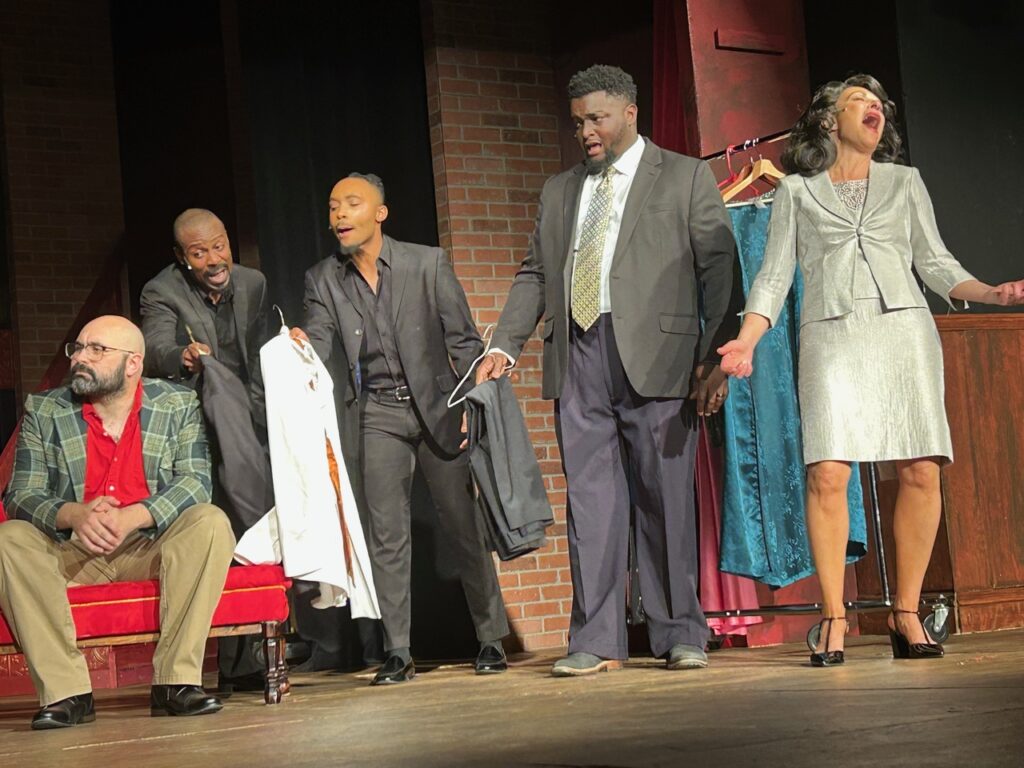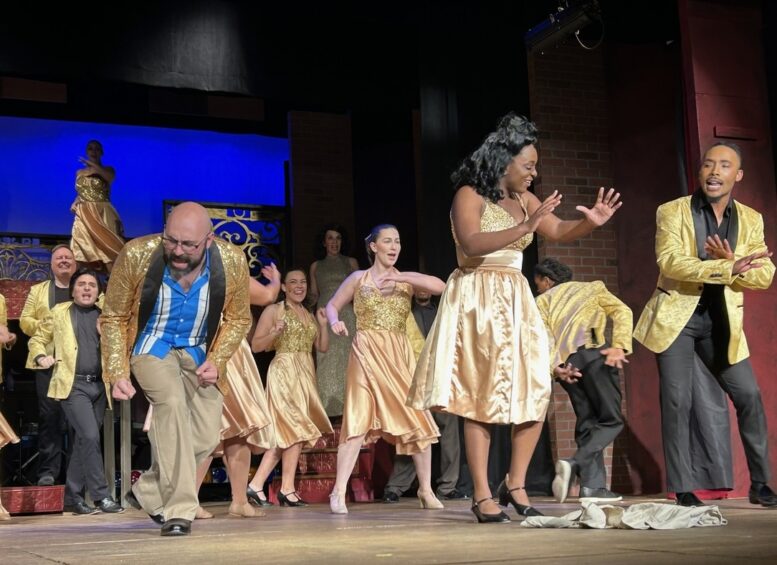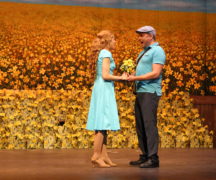By DAVID DUPONT
BG Independent News
Memphis in the 1950s is a happening place with great music all round.
Except a large segment of the population isn’t hearing those vibrant sounds. The music simmers in African-American clubs and churches. White folks don’t listen to “race music.”
One evening Huey Calhoun, a white guy, saunters into Delray Farrell’s underground club with a vision no one of either race believes in nor do they trust the visionary. Huey wants to share his love of the emerging soul and r ’n’ b with White listeners.
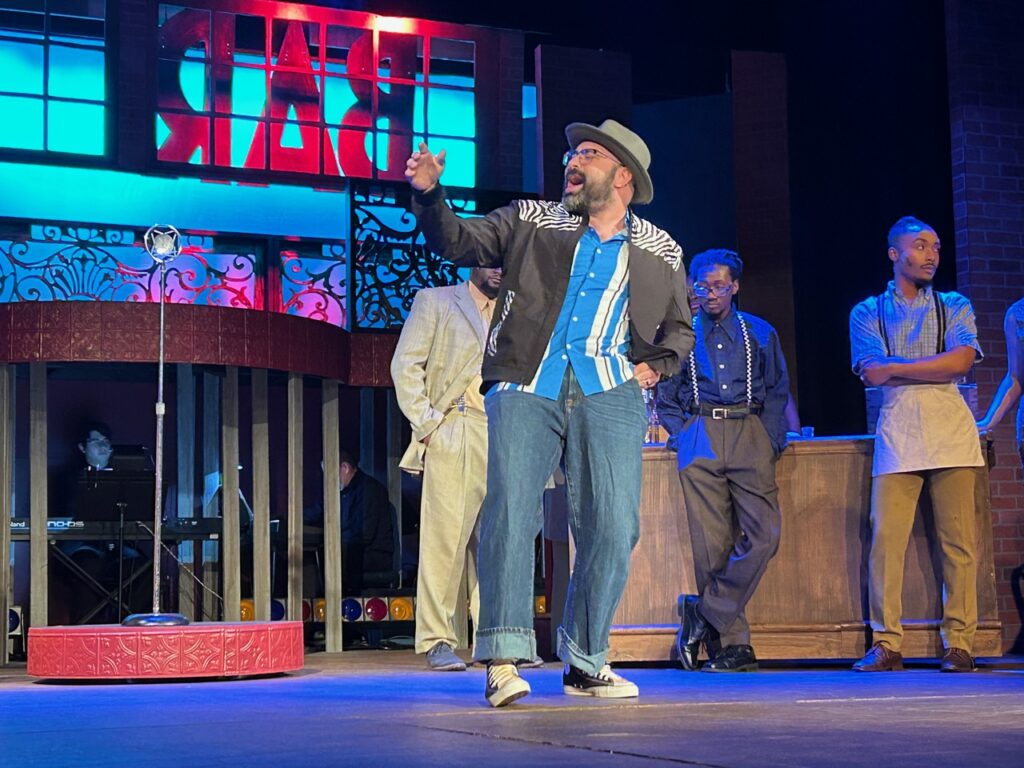
“Memphis the Musical” tells about Huey pursuing his dreams and the mixed blessings of achieving it.
The Toledo Repertoire Theatre presents the musical over the next three weekends. Showtimes are: Tonight (June 6), and Saturday June 7 at 8 p.m. continuing, with shows June 13, 14, 19, 20, and 21 at 8 p.m. with Sunday matinees on June 8, 15 and 22 at 2:30 p.m. Click for tickets.
“Memphis” with book and lyrics by Joe Dipietro and music and lyrics by David Bryan is directed and choreographed with a sure hand by Dom Glover.
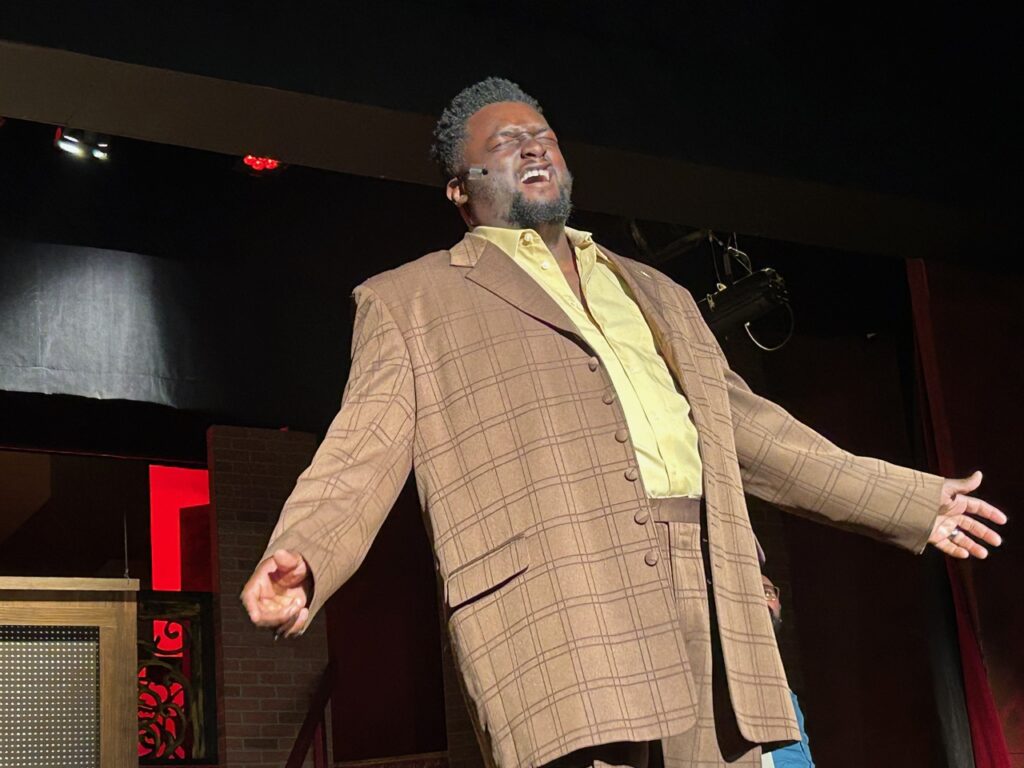
A White guy’s arrival in a Black underground club would always be awkward, but Huey (Michael Barlos) would be awkward no matter where he was going.
He’s a shambling guy who seems self-assured despite himself. He’s clearly wired differently, and certainly doesn’t share the racist views common in Memphis at the time.
Despite his attempts of good will, he’s shown the door. But he won’t go.
He sings “The Music of My Soul” to express his love of the music, and he’s joined by the club’s star attraction Felicia Farrell (Chloe Smallwood), the sister of the club owner Delray (Brian Jones).
Huey tells Felicia that he wants to get her on the radio, and maybe they could go out on a date.
That does nothing to endear him to Delray who seethes at Huey’s intrusion.
From his first entrance, Barlos captivates his audience with his strange, at times, off-putting character. When he dances and sings he does so convincingly as an avid student. He believes in his dream, and can’t understand why no one does. Underground clubs aren’t the only places he barges into. He also takes over the mic at a radio station when it’s on the air.
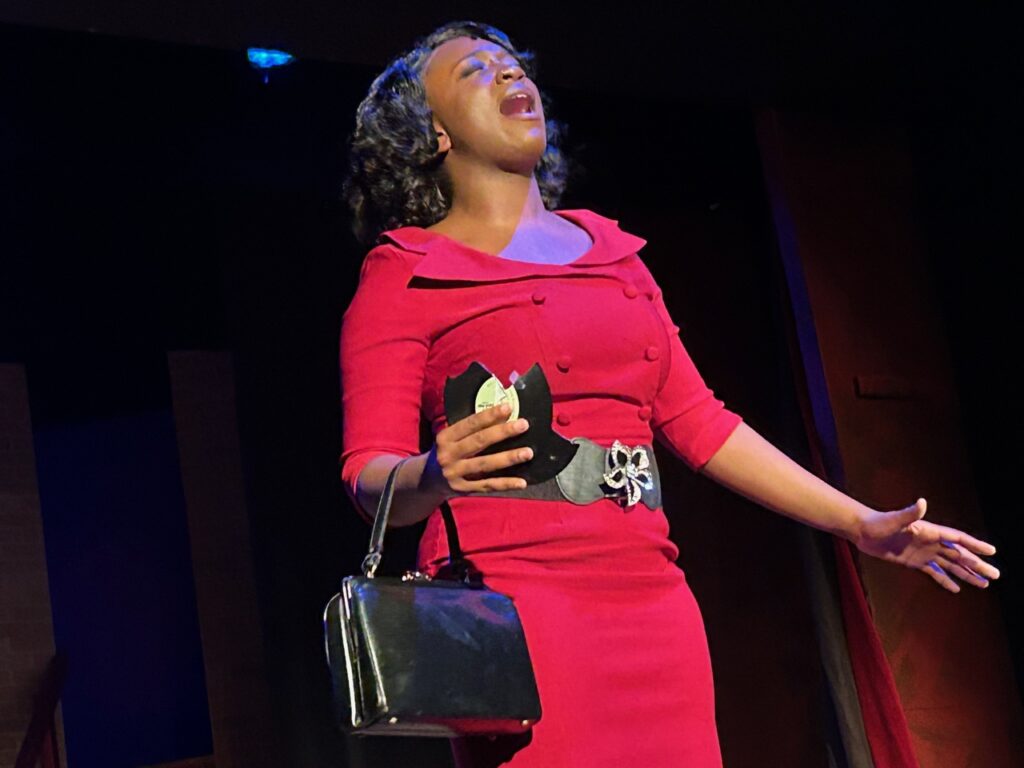
The owner Simmons (Kevin O’Korn) had let him in based on a incident at the department store where Huey had worked where Huey had taken over the music department and sold so-called race records to a bunch of White teens. That stunt, a last in a history of transgressions, got him fired.
An outpouring of audience support though convinces Simmons to give him a job. Huey with his exuberant jive, spins the station to the top of the ratings. He coins the word “huckadoo” as an expression of joy while trying to peddle beer on sale at a local grocery store. He has to improvise much of the ad, because he can’t read. Delray’s friend who works as a janitor at the radio station, Bobby DuPree (Raymond Collins III) has to read it to him but he can only remember the gist.
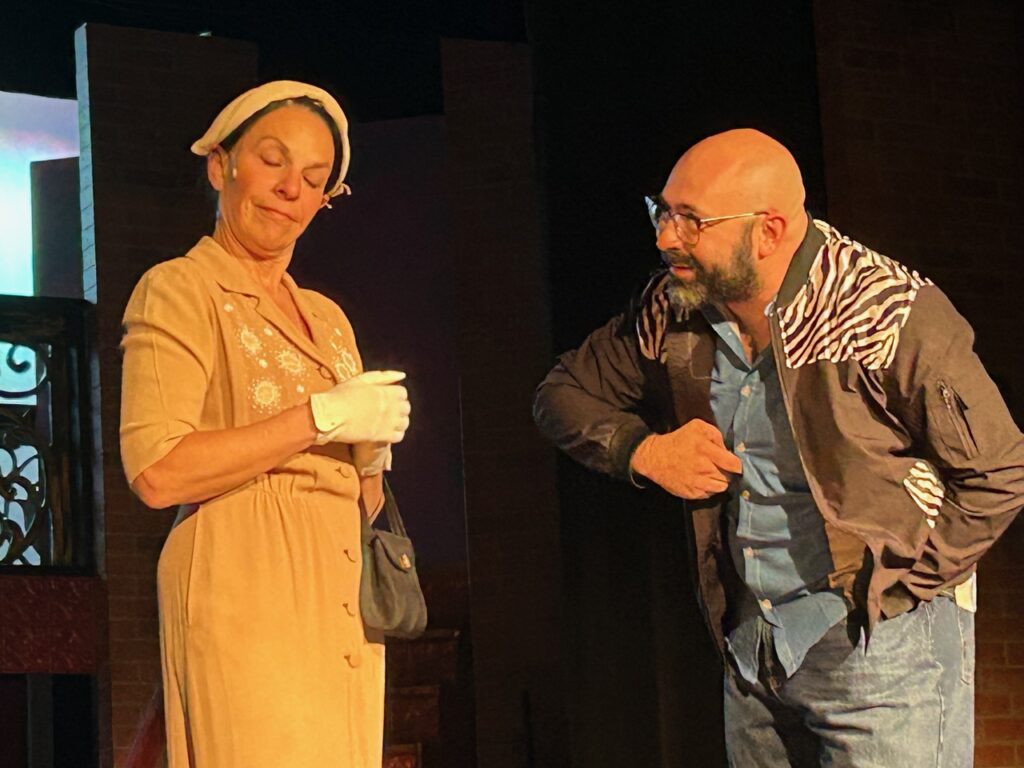
This sets up his fulfilling his promise to Felicia to get her on the air. This happens despite Felicia’s angry encounter with Huey’s racist mama Gladys (Lydia Schafer).
This is not the only time vicious racism is exposed.
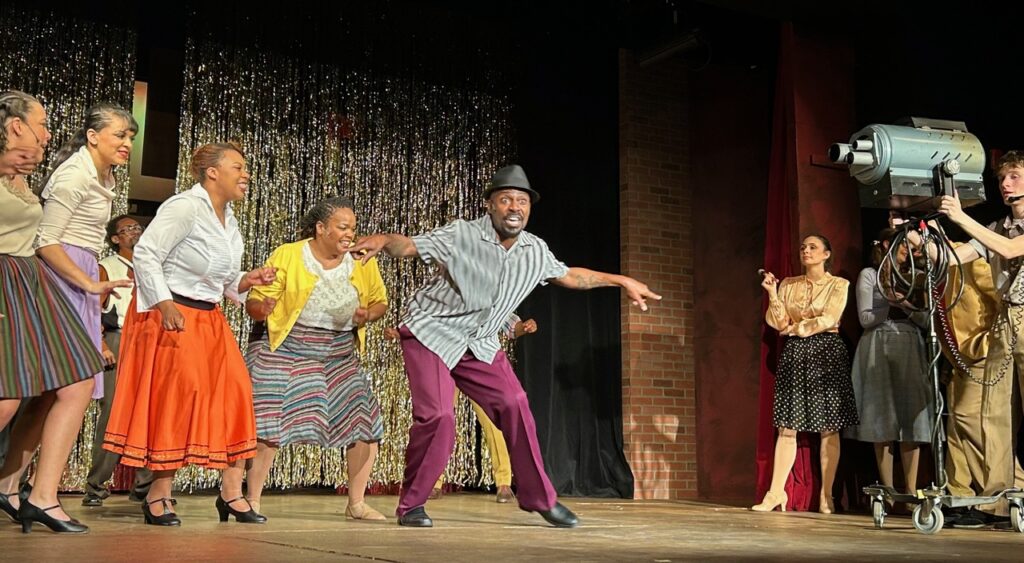
Gator (Tai Terry) has not spoken since seeing his father lynched. Bobby tries to keep his vocal talents under wraps, until urged to express himself by Huey. Given his chance on “Big Love” he soars, adding so slick dance moves was well.
Given Glover serves as both director and choreographer it’s not surprising that the show’s ensemble is always in a state of joyous movement. (Ensemble members are: Bradley Baker, Byron Barker, Ashley Crawford, Tyson Hughes, Nikkia Matthews, Jordan Miller, Danielle Moseley, Brie Riley, JosephTurner, Dylan Coale, Kamron Giradot, Aubrey Herrera-Hess, Courtney Kattengall-Blake, Lee Nicolas, Emma Schramm, Sidney Bramlett, Lizzie Swaile, Gary Insch, and Tyler Yard.)

Huey and Felicia do go out, and go further. But despite Huey’s idealistic proposal, Felicia knows that marriage is not only abhorred but it’s illegal in Memphis.
Smallwood makes sure with her wondrous pipes that the audience never doubts that her character has the goods to have a career in music. Her solo “Love Will Stand When All Else Falls” is a powerful testament to her talent and Felicia’s belief in herself. While the script puts Huey at the center, this could be Felicia’s story as a talented woman making her way through the gravitational pull of men who think they know what’s best for her.
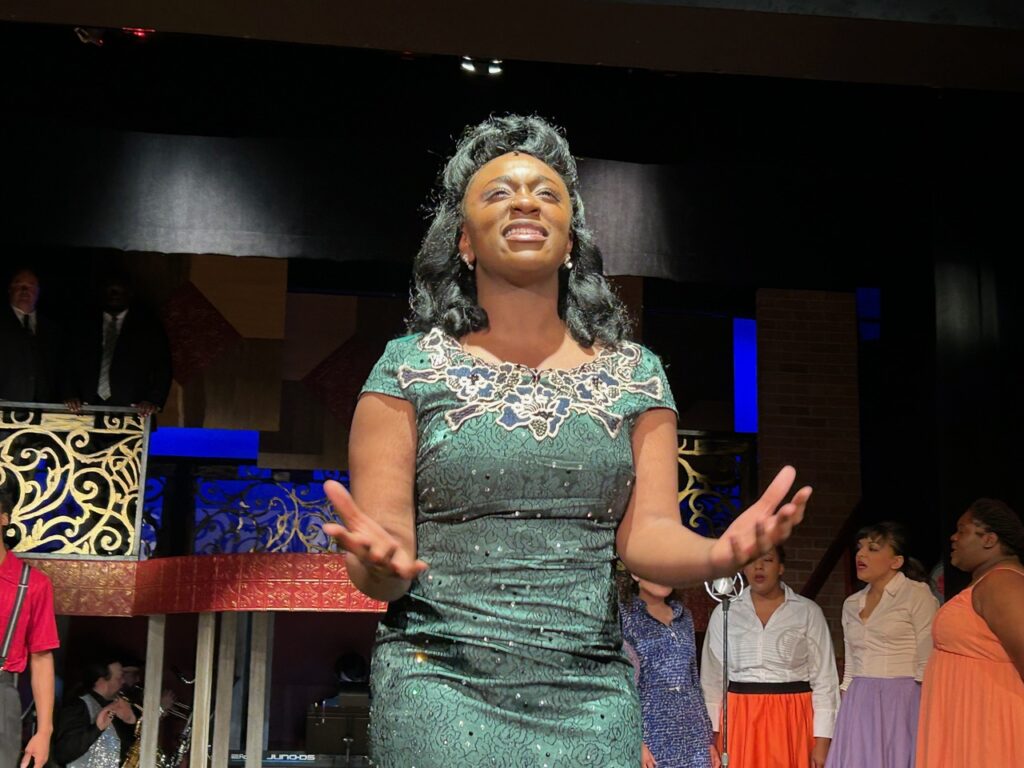
While she gets heard in Memphis, bigger markets are calling, and Delray is anxious to have her exploit those opportunities, even at the risk of her being exploited herself. Simmons and others in the business want to be able to sell Black music without its being too Black.
A talented singer out front is one thing, but a show featuring Black dancers is another.
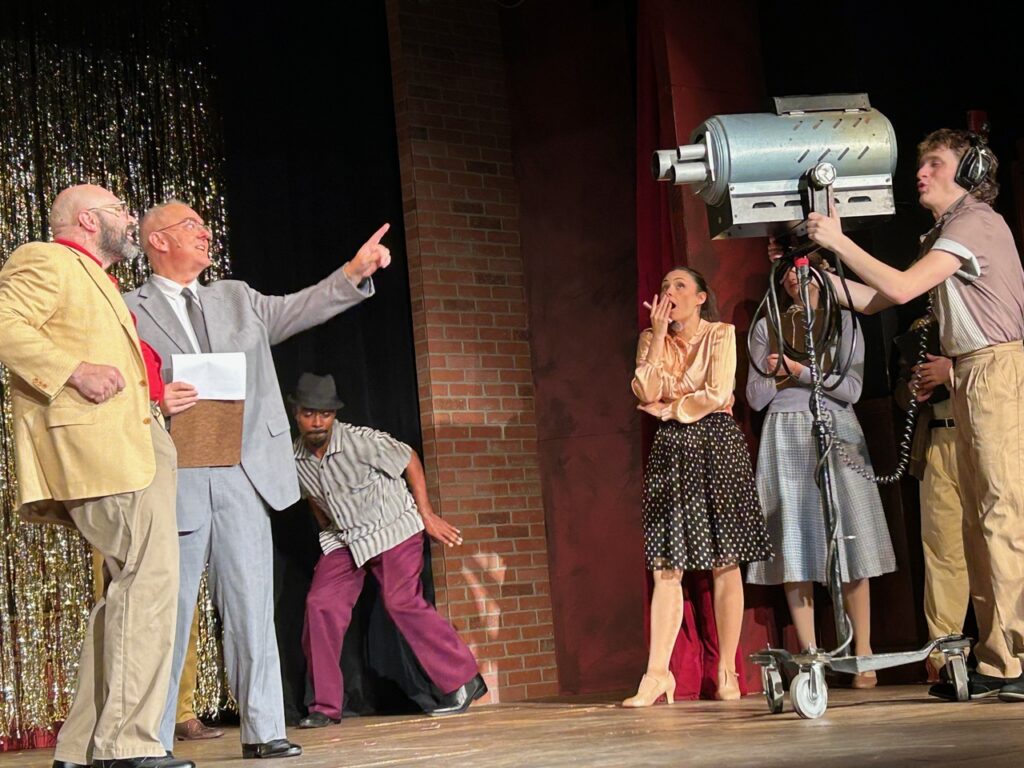
This is a national TV show, one executive tells Huey when he gets his big chance, and having too many Black won’t fly.
That’s where Huey draws the line, and now that there deejays are playing Black music, he’s not special.
Felicia heads to New York without him. He stays behind. Downtrodden again Huey sings “Memphis Lives in Me.”
He gets the last word: “Hockadoo!”
